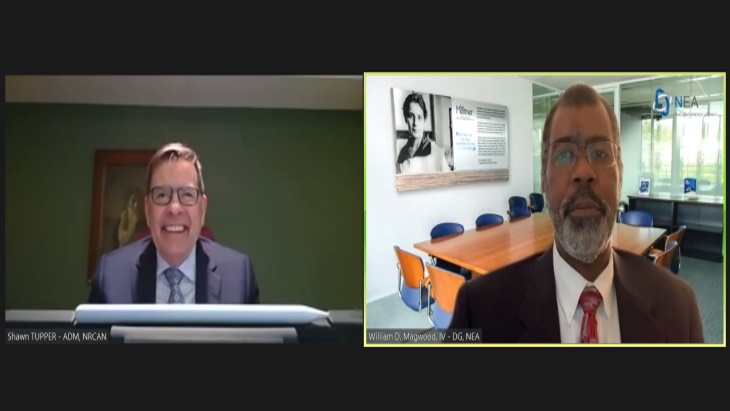"I think that is a shift that has occurred in this last year," Tupper said in a webchat with OECD Nuclear Energy Agency Director-General William Magwood. "We've got to stop talking about Utopia; we've got to stop just talking about what our targets are and actually articulate our plan starting tomorrow … what are the building blocks to getting there."
"Historically, there's been a lot of discussion about the competition [between] energy sources. Now we're talking about how do we bring them all together … how do we understand the energy system and the component parts that make up that system. So now we can talk about nuclear complementing our strategy around alternative fuels … we can look at nuclear as a baseload on which we can build our alternative strategy. I think that's a fundamental shift that is now allowing us to be pragmatic."
The energy sector makes up almost 20% of Canada's GDP, Tupper said. "It’s not an easy thing to say we will be carbon-neutral by 2050 without articulating a plan for a fifth of our economy."
As a country that is also a major producer of fossil fuels Canada has already had to "have the conversation" about the "just transition" from coal and will now have to look at oil and gas in a similar way, Tupper said. Partnering and learning from "cleantech" investors could be instrumental in achieving a transition and finding a balance between the availability of technology , understanding impacts, and making smart choices at local level to achieve climate objectives.
The integration of alternative energy sources into the energy mix has been an easier conversation for those Canadian provinces which already have large-scale hydro capacity, but a harder idea for those that still rely heavily on fossil fuels for baseload, he said. "Those provinces [that currently rely on coal and natural gas] have got to make some choices about where their baseload is going to come from … and that's where SMRs have really started to pop up. We've seen currently non-nuclear provinces - like Saskatchewan and Alberta - sign on to MoUs with the nuclear provinces to express their interest in these new technologies to help meet their energy demand in a cleaner way," he said.
"Again, that's an indicator that people are starting to see energy systems and the choices that we have to make in a much longer term way, and I think that's to everybody's advantage."





_87299.jpg)
_52351.jpg)








